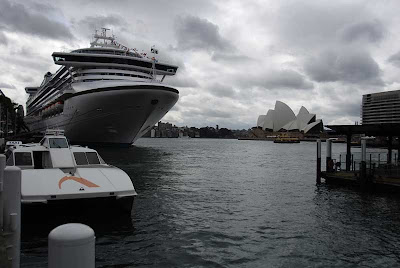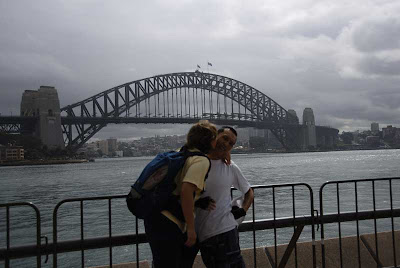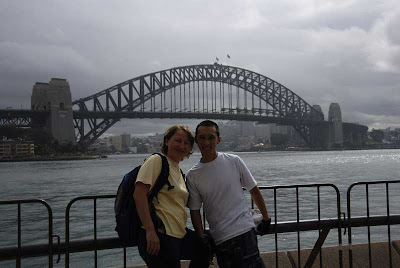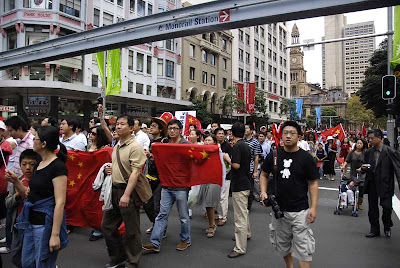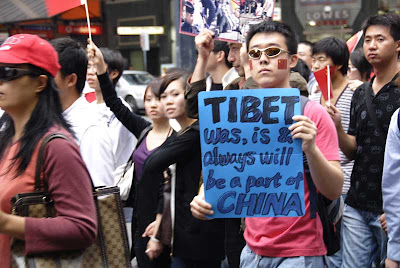
The Dalai Lama: on China, hatred and optimism
An inspiring, soul-touching interview with The Dalai Lama on the subject posted below...My opinion: It will be terribly hard to change anything in Tibet without the Western World getting involved. No government said NO to the olimpics?
Thurman: You use the term "cultural genocide" to describe what China is doing in Tibet but have suggested that Tibet could live with self-rule within China. How do you define self-rule, and what are its advantages over independence?
Dalai Lama: Today, due to the massive Chinese population transfer, the nation of Tibet truly faces the threat of extinction, along with its unique cultural heritage of Buddhist spirituality. Time is very short. My responsibility is to save Tibet, to protect its ancient cultural heritage. To do that I must have dialogue with the Chinese government, and dialogue requires compromise. Therefore, I'm speaking for genuine self-rule, not for independence.
Self-rule means that China must stop its intensive effort to colonize Tibet with Chinese settlers and must allow Tibetans to hold responsible positions in the government of Tibet. China can keep her troops on the external frontiers of Tibet, and Tibetans will pledge to accept the appropriate form of union with China.
Because my main concern is the Tibetan Buddhist culture, not just political independence, I cannot seek self-rule for central Tibet and exclude the 4 million Tibetans in our two eastern provinces of Amdo and Kham. [Once part of an independent Tibet, Amdo is now known to the Chinese as Qinghai; Kham has been divided into the Chinese provinces of Gansu, Sichuan, and Yunnan. -- Eds.]
I have been clear in my position for quite a while, but the Chinese have not responded. Therefore, we are now in the process of holding a referendum on our policy among all the Tibetan community in exile and even inside Tibet, to check whether the majority thinks we are on the right track. I am a firm believer in the importance of democracy, not only as the ultimate goal, but also as an essential part of the process.
Thurman: To your mind, once self-rule is achieved, who should be in charge of the economic development of Tibet -- the Chinese or Tibetans?
Dalai Lama: Tibetans must take full authority and responsibility for developing industry, looking from all different perspectives, taking care of the environment, conserving resources for long-term economic health, and safeguarding the interests of Tibetan workers, nomads, and farmers. The Chinese have shown interest only in quick profits, regardless of the effect on the environment, and with no consideration of whether a particular industry benefits the local Tibetans or not.
Thurman: What is the environmental condition of Tibet today, 47 years after the Chinese invasion?
Dalai Lama: The Chinese have clear-cut over 75 percent of our forests, thereby endangering the headwater regions of their own major rivers. They have overharvested the rich resources of medicinal herbs and caused desertification of our steppes through overgrazing. They have extracted various minerals in environmentally destructive ways. Finally, in their frenzied effort to introduce hundreds of thousands of new settlers into south central Tibet, they are threatening to destroy the ecosystem of that rich barley-growing region by draining its major lake to produce hydroelectric power.
Thurman: What do you think it will take for China to change its policy toward Tibet?
Dalai Lama: It will take two things: first, a Chinese leadership that looks forward instead of backward, that looks toward integration with the world and cares about both world opinion and the will of [China's] own democracy movement; second, a group of world leaders that listens to the concerns of their own people with regard to Tibet, and speaks firmly to the Chinese about the urgent need of working out a solution based on truth and justice. We do not have these two things today, and so the process of bringing peace to Tibet is stalled.
But we must not lose our trust in the power of truth. Everything is always changing in the world. Look at South Africa, the former Soviet Union, and the Middle East. They still have many problems, setbacks as well as breakthroughs, but basically changes have happened that were considered unthinkable a decade ago.
To read the full interview click down here:
Interview

